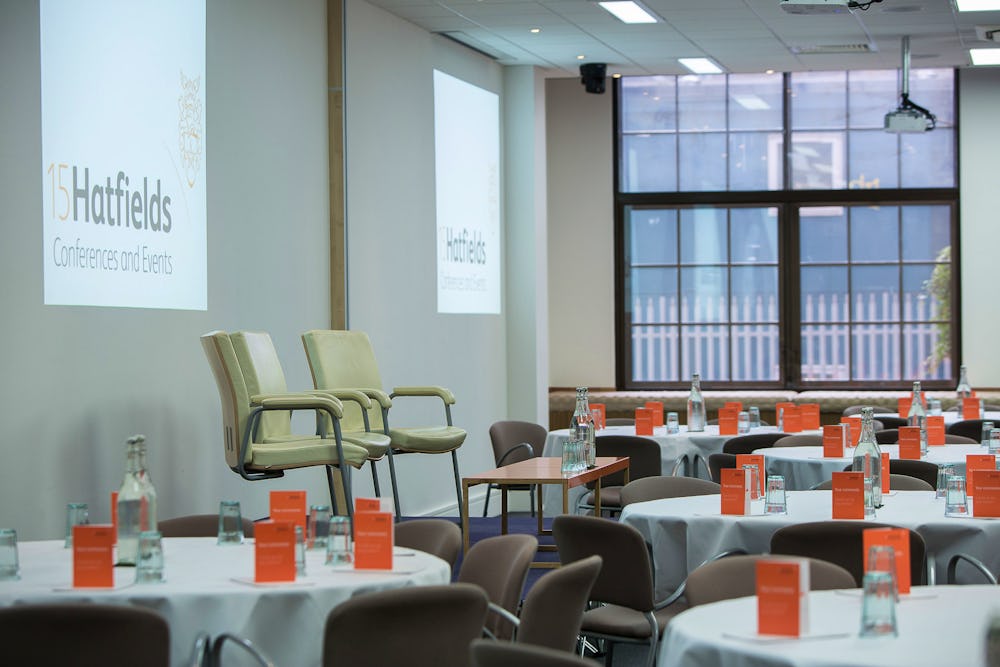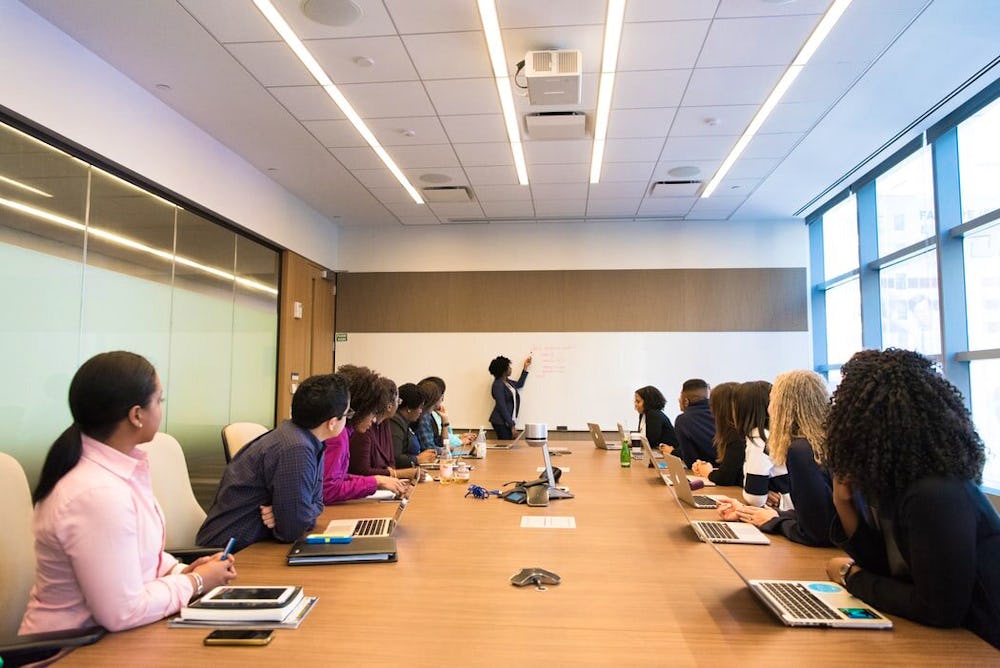A key part of being a successful event planner is to be adaptable and able to navigate changing circumstances. It is safe to say though, that in 2020, the events industry faced change like it has never seen before with the onset of the global Covid-19 pandemic.
As various countries around the world were plunged into lockdown and large social and corporate gatherings banned, event professionals began to wonder how an industry built on networking and in-person interactions could survive such seismic changes to the way people live. Event planners had to grapple with questions such as whether in-person events would ever take place again, whether the likes of large-scale conferences would move solely online and if we were witnessing the office Christmas party go extinct?
There is no denying that these are ever-changing and unpredictable times, but here at SquareMeal, we have faith that in-person events are not going anywhere. The truth is that no computer screen or digital slideshow can replace the innumerable benefits of meeting people in person and building relationships with them face-to-face. However, it is also true that in-person events going forward will look a little different and that event planners will have to account for certain factors that were once barely thought about.
Planning your first post-Covid event can be a challenging and scary task, but now is the time for event planners to reflect, evaluate and prepare for the new events landscape. To make sure your first post-Covid event goes off without a hitch, we have compiled a checklist of tips and tricks to help you out, as well as featuring useful quotes from industry experts.
Check out our guide to planning an event in a post-Covid world below and we look forward to in-person events taking place once more - we’ll meet you there!
1.) Think about your venue

Finding the right venue has always been critical to the success of public events, but venue sourcing is likely to look a little different these days, with event planners now having multiple new factors to consider.
Although Covid restrictions have been officially lifted in most of the UK, it is important to have an understanding of any restrictions or considerations that you will need to think about in the city where you are hosting your event. Also make sure to engage with your chosen venue and have open and honest conversations with them about expected turnout and how Covid-19 has impacted your event.
With this in mind, it is also crucial to have a Plan B. Make sure that you are working with a venue who can be flexible in terms of providing digital assistance or reconfiguring spaces to ensure social distancing. It is also a good idea to put together a contingency plan, which maps out a timeline of when and where things could go wrong - what is the latest date that you can cancel the entire event if needed? How far in advance can you change the catering requirements? What is the latest date that you adjust the number of spaces you’ve reserved at the venue?
Venues are understanding of the challenges that event professionals are facing, but they also need to ensure their own survival, so it is important to do your research thoroughly before choosing a venue and stay in constant communication with them leading up to the event. For extra help, use our free venue-finding concierge service.
2.) Build trust with attendees

As an event planner, it has always been crucial to consider the feelings of your guests. It is important to remember that several events professionals (and the general public) will not have been to any large-scale events in over a year and a half, so they may well have anxieties and concerns about attending their first in-person event.
To ease these concerns, it is essential to make it clear to guests what measures you have put in place to ensure their safety. If you have built a website for your event, make sure to have a clearly signposted Covid-19 policy which attendees can read ahead of time. You can also send communications via email, which clearly list precautions that are being taken and let guests know of any steps they need to take before attending (e.g. presenting a negative Covid test 24 hours before the event).
3.) Embrace new technologies

For the foreseeable future, most in-person events will need to include at least some digital/virtual elements to accommodate the new way of networking. For example, it is now more likely that a keynote speaker may have to self-isolate after being exposed to a Covid-positive person. To plan for this, it is important to choose a venue partner that is able to be flexible and can accommodate last-minute technology changes. You might also consider hosting a hybrid event, in which a portion of your guests attend in-person and the rest attend virtually.
WHAT THE EXPERTS ARE SAYING

Warren Campbell, general manager at 15Hatfields says: “Sustainability is at the heart of every business decision at 15Hatfields, so we have worked incredibly hard to find solutions to combat any COVID-related risks with measures that avoid harming the environment. As part of our ‘sustainably-secure’ motto, we consider everything from reusable face masks to free hand sanitiser refills and feel firm precautions should still be in place to mitigate client concerns, but a return to live events should largely be about contingency plans now and finding a venue that can be as adaptable as possible. We have fully integrated cameras for webcasting at 15Hatfields so that events can be professionally streamed to wider audiences at short notice. This is one of many measures we have in place to cater for your secure return to in-person events.
When choosing a venue, it’s worth selecting one that has been officially accredited by respected industry bodies to give you the confidence in knowing that it’s undergone thorough auditing by professionals, when it comes to guest safety. The Meetings Industry Association’s AIM Secure and Visit England’s Good To Go accreditations are nationally recognised ones to look out for, and as the home of the Chartered Institute of Environmental Health, 15Hatfields is proud to have achieved these.”
4.) Go green

Sustainability and being environmentally conscious is a social issue that is now at the forefront of the event planning industry. However, efforts to go green can easily go hand in hand with precautionary measures to limit the spread of Covid. To lessen the amount of paper used at events, employ digital scanners which allow for contactless registration and encourage the use of digital business cards. When it comes to catering, providing a boxed packed lunch for each attendee rather than a communal buffet is a more Covid-safe approach and will also lessen food waste.
5.) Utilise breakout areas

Breakout workspaces have become a fixture of corporate events in recent years and are a great way to break up the day and encourage creative thinking. Break rooms are now more important than ever, as they can be used to break up large groups which might make people anxious, while still providing the right environment for successful collaboration.
Breakout areas are typically indoors, but you can get creative and take things alfresco - why not set up a breakout area in the gardens of your venue, or at a nearby attraction such as a local park or beach? If your breakout area requires more formal amenities such as a whiteboard or flipchart, you can use an indoor space, but just remember to book a space large enough that you won’t be required to fill it to its full capacity.
6.) Make use of outdoor space

Outdoor space at off-site venues has always been valuable, but after a year and a half of intermittent lockdowns, delegates are more keen than ever to enjoy the great outdoors. Concerns about weather mean that hosting an exclusively outdoor event is not always appealing, but incorporating outdoor space into your event is a great way to reassure guests of their safety and also helps to break up the day.
Team-building activities such as biking or assault courses often lend themselves to being outdoors, while wellness activities such as yoga and meditation can also benefit from taking place outdoors in serene surroundings. Outdoor time at events also offers a whole host of proven employee benefits, including increasing energy levels, relieving stress and inspiring more creativity.
In a post-Covid world, venues with outdoor space will allow you to reap all the usual benefits of in-person interaction, while letting guests maintain a safe distance from each other and providing plenty of fresh air.
For more general party-planning advice, check out our ultimate party planning checklist.